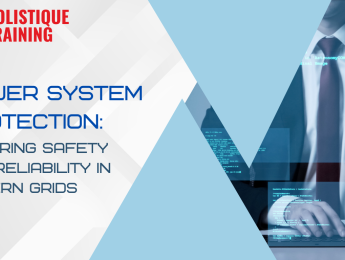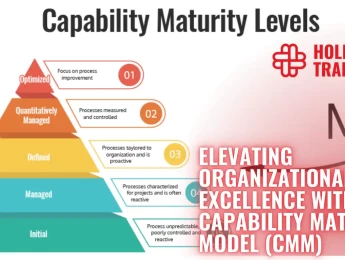Hydrocarbons are essential components of various industrial processes, making accurate hydrocarbon measuring a crucial aspect of ensuring safety, efficiency, and optimal performance. One of the critical measurements in this domain is the hydrocarbon dew point, which directly impacts the handling and transportation of hydrocarbon products. In this blog post, we will explore what hydrocarbon measuring entails, the benefits of measuring hydrocarbon dew point, best practices in this process, and where to find reliable hydrocarbon dew point analysers.
What Is Hydrocarbon Measuring?
Hydrocarbon measuring is the process of determining the various properties and characteristics of hydrocarbon-based substances, such as crude oil, natural gas, and petrochemical products. These measurements are essential for several reasons, including quality control, safety assurance, and process optimisation.
One of the crucial measurements in hydrocarbon analysis is the hydrocarbon dew point. The dew point is the temperature at which hydrocarbons present in a gas mixture start to condense into liquid form. This measurement is crucial in various industries, including oil and gas, petrochemical, and natural gas processing.
Benefits of Measuring Hydrocarbon Dew Point
Accurate hydrocarbon dew point analysis offers a range of benefits that directly impact industrial processes and operational safety:
a. Equipment Integrity
Understanding the hydrocarbon dew point is paramount for maintaining the integrity of processing equipment. When hydrocarbons condense into a liquid state within equipment, it can lead to corrosion, erosion, and blockages. This compromises the structural integrity of pipes and vessels, posing a threat to the entire system. By accurately measuring the dew point, operators can ensure that hydrocarbons remain in their gaseous phase, preventing the formation of harmful liquids that can wreak havoc on equipment over time.
b. Process Efficiency
The ability to comprehend and control the hydrocarbon dew point empowers engineers and operators to optimise process conditions. When hydrocarbons are in a gaseous state during transportation, storage, and processing, it enhances the overall efficiency of the system. Maintaining hydrocarbons in their vapour form reduces energy consumption and ensures a smoother flow through pipelines and other processing equipment. This optimisation not only improves operational efficiency but also contributes to cost-effectiveness in the long run.
c. Quality Assurance
In the natural gas industry, the analysis of hydrocarbon dew points is a crucial aspect of determining the quality and market value of the gas. It plays a vital role in ensuring compliance with contractual specifications. By accurately measuring the dew point, companies can avoid discrepancies in quality that may lead to contractual disputes. This precision in measurement safeguards the reputation of the industry and maintains the trust of stakeholders, reinforcing the importance of hydrocarbon dew point analysis in quality assurance.
Table 1: Specific scenarios and outcomes related to the benefits of dew point analysis
d. Safety Compliance
Hydrocarbon dew point measurements are indispensable for safety protocols in gas pipelines and processing facilities. Liquid hydrocarbons can pose significant hazards, including the risk of explosions and equipment failures. By accurately measuring and controlling the dew point, operators can avoid the formation of liquid hydrocarbons, mitigating potential dangers. This not only protects the facility and its personnel but also safeguards nearby communities and the environment from the consequences of uncontrolled hydrocarbon condensation.
e. Environmental Considerations
Accurate hydrocarbon dew point analysis contributes to environmental protection in several ways. By minimising the formation of liquid hydrocarbons, the risk of hydrocarbon emissions during storage and transportation is reduced. This not only ensures compliance with environmental regulations but also mitigates the potential for leaks and spills that could harm ecosystems. As industries worldwide face increasing scrutiny for their environmental impact, precise hydrocarbon dew point measurements emerge as a crucial tool for responsible and sustainable practices.
In a bid to quantify these benefits and emphasise their significance, let's delve into a comparative analysis in the form of a table, showcasing the impact of accurate hydrocarbon dew point measurement on various aspects of industrial processes:
Benefit | Without Dew Point Analysis | With Dew Point Analysis |
Equipment Integrity | Increased risk of corrosion, erosion, and blockages | Mitigated risk through prevention of liquid formation |
Process Efficiency | Reduced operational efficiency due to liquid presence | Enhanced efficiency with optimised gaseous conditions |
Quality Assurance | Potential for contractual disputes | Assurance of compliance and avoidance of disputes |
Safety Compliance | Higher risk of explosions and equipment failures | Mitigation of hazards through prevention of liquid formation |
Environmental Considerations | Increased risk of hydrocarbon emissions and leaks | Minimisation of environmental impact through reduced emissions and leaks |
This table succinctly illustrates the tangible benefits that accurate hydrocarbon dew point analysis brings to the forefront of industrial processes. It serves as a practical tool for decision-makers and operators, emphasising the value of investing in precision and reliability when it comes to hydrocarbon measurements.
Best Practices in Hydrocarbon Measuring
To ensure reliable and accurate hydrocarbon dew point measurements, it is crucial to follow best practices in the measurement process:
a. Choose the Right Analyser
Selecting the appropriate hydrocarbon dew point analyser is the foundational step in accurate measurement. Factors such as gas composition, pressure, temperature range, and required accuracy must be carefully considered. Among the available options, chilled mirror analyzers are known for their high accuracy but may require regular maintenance. On the other hand, online analyzers provide real-time measurements, offering convenience but requiring a different approach to maintenance. By understanding the unique demands of the specific application, operators can choose an analyzer that aligns with the operational requirements while ensuring accuracy and reliability.
b. Sample Conditioning
Proper conditioning of the gas sample is essential for accurate dew point analysis. The gas must undergo thorough filtering and drying to eliminate any moisture that could interfere with the measurements. Moisture content in the gas sample can significantly impact the accuracy of the dew point measurement, leading to unreliable results. Implementing effective sample conditioning measures ensures that the gas entering the analyzer is free from contaminants, allowing for precise and consistent measurements.
c. Calibration
Regular calibration of the hydrocarbon dew point analyzer is vital to maintaining accuracy over time. Calibration should be performed using traceable standards to establish reference points. This process involves comparing the readings of the analyzer with known standards, adjusting for any deviations. Calibration intervals should be defined based on the specific requirements of the application and the manufacturer's recommendations. A well-calibrated analyzer ensures that the measurements remain accurate and reliable, providing confidence in the integrity of the data collected.
d. Operator Training
Adequate training for operators is a cornerstone of successful hydrocarbon dew point measurement. Operators must understand the principles of hydrocarbon dew point analysis and the proper use of the analyzer. Training programmes should cover instrument operation, troubleshooting procedures, and interpretation of results. Well-trained operators are not only capable of conducting accurate measurements but can also identify potential issues and address them proactively. Continuous training and skill development contribute to the overall effectiveness of the measurement process.
e. Maintenance and Service
Regular maintenance of the hydrocarbon dew point analyzer is essential to keep it in optimal condition. Establishing a proactive maintenance schedule, including routine inspections and component replacements, helps prevent unexpected breakdowns and ensures consistent performance. Access to technical support from the manufacturer or supplier is crucial for addressing any issues promptly. A well-maintained analyzer operates reliably, minimising downtime and providing trustworthy data for decision-making.
f. Validation and Quality Assurance
Periodically validating the performance of the analyzer adds an extra layer of quality assurance. This involves comparing the readings of the hydrocarbon dew point analyzer with those from a secondary analyzer or a certified laboratory. Validation ensures that the analyzer continues to provide accurate measurements over time. By regularly assessing the performance against an independent reference, operators can identify any drift or deviations, allowing for timely corrections. Validation processes contribute to the overall reliability and credibility of the hydrocarbon dew point measurements.
Incorporating these best practices into the hydrocarbon measuring process establishes a robust framework for accurate and reliable results. It not only enhances the precision of measurements but also contributes to the longevity of the equipment and the safety of industrial operations. By prioritising these practices, industries can optimise their processes, minimise risks, and uphold the highest standards in hydrocarbon dew point analysis.
Where to Get Hydrocarbon Dew Point Analysers
Obtaining reliable hydrocarbon dew point analysers is crucial for accurate measurements. There are reputable manufacturers and suppliers in the market offering a wide range of analysers suitable for various applications, such as ZEGAZ Instruments. When choosing an analyser, consider factors such as:
a. Reputation and Experience
When seeking hydrocarbon dew point analyzers, it is essential to align with manufacturers or suppliers with a strong reputation and extensive experience in the industry. A company with a proven track record is more likely to provide reliable and accurate analyzers. Reviews, testimonials, and case studies from other users can offer valuable insights into the performance and reliability of a particular manufacturer's products. By choosing a reputable supplier, businesses can instil confidence in the quality of the equipment they acquire.
b. Customisation
Different applications may have unique requirements when it comes to hydrocarbon dew point analysis. Opting for a supplier who offers customisation options ensures that the analyzer can be tailored to specific needs. Customisation might involve adjusting the analyzer's specifications to accommodate variations in gas composition, pressure, or temperature. A supplier willing to work closely with the end-user to understand their specific requirements and provide tailored solutions adds significant value to the acquisition of hydrocarbon dew point analyzers.
c. Support and Service
Comprehensive technical support and maintenance services are indispensable elements of a successful partnership with a supplier. The complexities of industrial processes demand a supplier that can offer timely assistance in case of issues and provide routine maintenance services to keep the analyzers in optimal condition. Before making a purchase, it's crucial to inquire about the level of support available, including whether the supplier offers training programmes for operators and has a responsive customer service team. A supplier committed to ongoing support enhances the longevity and performance of the hydrocarbon dew point analyzers.
d. Compliance and Certifications
Ensuring that the hydrocarbon dew point analyzers comply with relevant industry standards and possess necessary certifications is a non-negotiable requirement. Compliance with standards not only reflects the reliability of the equipment but also ensures that it meets the regulatory requirements of the industry. Certifications from recognised bodies add an extra layer of assurance regarding the quality and accuracy of the analyzers. Before finalising a purchase, businesses should verify the compliance and certifications of the analyzers to mitigate risks and ensure the instruments meet the necessary industry benchmarks.
The Future of Hydrocarbon Measuring
The evolution of hydrocarbon measuring is poised for groundbreaking advancements, with the future promising innovative technologies that can revolutionise accuracy, sensitivity, and efficiency in industrial processes.
Quantum Sensors: Precision Beyond Conventional Limits
At the forefront of the future of hydrocarbon measuring is the integration of quantum technology, specifically quantum sensors. Quantum sensors leverage the principles of quantum mechanics to achieve unparalleled precision in measurements. These sensors can exploit quantum phenomena, such as superposition and entanglement, to detect even the slightest changes in hydrocarbon properties. Unlike traditional sensors, quantum sensors can surpass the limitations imposed by classical physics, offering a level of accuracy that was once deemed unattainable.
The potential impact of quantum sensors on hydrocarbon measuring is substantial. Quantum sensors could provide measurements with unprecedented sensitivity, allowing for the detection of minute variations in hydrocarbon composition, pressure, and temperature. This heightened precision translates to more accurate assessments of hydrocarbon dew points and other critical parameters. The adoption of quantum sensors in hydrocarbon analysis could redefine industry standards, enabling operators to make decisions based on data of exceptional quality and reliability.
Integration of Artificial Intelligence (AI) and Machine Learning (ML)
Another transformative trend in the future of hydrocarbon measuring involves the integration of artificial intelligence (AI) and machine learning (ML) algorithms. These intelligent systems can enhance the efficiency of data analysis and interpretation, leading to more insightful and actionable results. AI and ML algorithms can analyse vast datasets in real-time, identifying patterns, anomalies, and correlations that may go unnoticed by traditional methods.
The application of AI and ML in hydrocarbon measuring holds several advantages. These algorithms can adapt to changing conditions and learn from historical data, improving their predictive capabilities over time. For example, an AI-powered hydrocarbon dew point analyzer could continuously refine its predictions based on evolving operational conditions, contributing to proactive maintenance and process optimisation. The integration of AI and ML is not only about precision but also about leveraging data-driven insights for informed decision-making and improved operational outcomes.
Enhanced Connectivity and IoT Integration
The future of hydrocarbon measuring is intrinsically tied to enhanced connectivity and the integration of the Internet of Things (IoT). Smart sensors, capable of real-time communication and data exchange, are becoming integral components of industrial processes. In the context of hydrocarbon measuring, IoT-enabled sensors can provide continuous monitoring and instant feedback on critical parameters.
For instance, IoT-connected hydrocarbon dew point analyzers could relay data to centralised control systems, allowing for remote monitoring and management. This level of connectivity enhances situational awareness and facilitates swift responses to changing conditions. The seamless integration of IoT technologies in hydrocarbon measuring not only improves the efficiency of data collection but also opens avenues for predictive analytics and proactive maintenance strategies.
Environmental Considerations and Sustainability
The future of hydrocarbon measuring aligns with the growing emphasis on environmental considerations and sustainability. As industries face increasing pressure to reduce their carbon footprint, hydrocarbon measuring technologies will play a pivotal role in supporting eco-friendly practices. The integration of advanced sensors and analytics can contribute to more efficient resource utilisation, minimising waste and emissions.
Moreover, the future of hydrocarbon measuring may witness the development of technologies specifically designed for environmental monitoring. These technologies could enable industries to track and mitigate the environmental impact of hydrocarbon-related activities more effectively. The pursuit of sustainable practices through enhanced measurement technologies reflects the evolving priorities of industries towards environmental responsibility and regulatory compliance.
In short, the future of hydrocarbon measuring is marked by a convergence of cutting-edge technologies that promise to elevate precision, efficiency, and sustainability in industrial processes. Quantum sensors, AI and ML integration, enhanced connectivity through IoT, and a heightened focus on environmental considerations collectively signal a transformative era in hydrocarbon analysis. As these innovations continue to unfold, industries will have the opportunity to not only meet current standards but also set new benchmarks for excellence in hydrocarbon measuring.
Conclusion
Hydrocarbon measuring, particularly hydrocarbon dew point analysis, plays a pivotal role in ensuring the safety, efficiency, and quality of industrial processes involving hydrocarbon-based substances. By following best practices in this measurement process and investing in reliable hydrocarbon dew point analysers, industries can optimise their operations, minimise environmental impact, and ensure the integrity of their equipment. By prioritising accurate hydrocarbon measuring, companies can enhance their overall performance and maintain a competitive edge in the dynamic world of hydrocarbon processing.
As the importance of accurate hydrocarbon measuring continues to grow, consider enrolling in our comprehensive course, ‘Hydrocarbon Measuring: Best Practices,’ where you can gain in-depth knowledge and hands-on experience to excel in this critical field.
























